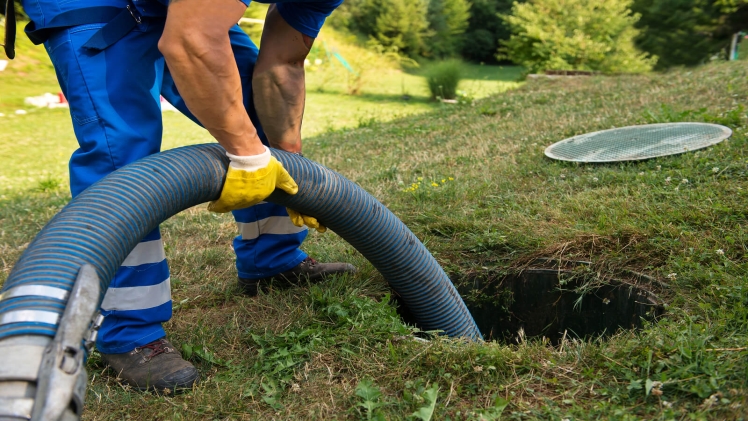When you notice a clog in the drain, you’ll initially think of using a plunger. However, there are some situations where standard plungers are useless. For instance, if the main sewer line of your home gets blocked, you might end up with a flooded home. This could result in needing the help of professionals for a home disaster cleanup. If you’re not able to identify and properly handle the clog in your sewer line, it could lead to serious damage.
Diagnosing Main Sewer Line Clogs
Your home has various drain lines that run from sinks, toilets, and other areas to the main sewer line. When these lines are working properly, all of your waste will be sent to either the septic system or sewer system of your home. If the main sewer line gets blocked, it could cause water to back up in your fixtures and other pipes.
There is usually no easy way to fix a main sewer line clog. These lines are usually buried under the ground, and you will require special equipment and knowledge to properly fix them. Although you can’t do it on your own, there are still ways that you can try to prevent the issue from getting worse.
Causes of Clogged Sewer Lines
This type of clog can be caused by many things, and damage to the sewer line is a common culprit. If a pipe bends or collapses, this could prevent waste from moving properly through the line. Other factors include soil shifting around the pipes, construction near the sewer line, damaged pipe joints, and pipe corrosion.
Fat is a common cause of sewer line clogs. When you pour fat, oils, or grease into a sink drain, it will eventually harden and cool. If you run hot water to get the oil or grease to firm up, this can cause the fat to stick to the lines. Objects like paper towels, toilet paper, and various other bulky items that have been flushed down the toilet can also cause blockage.
Trees are powerful enough to branch out and reach into your home’s sewer pipes. Even tiny roots can get into the pipes, and they can cause a clog. Although you may not notice a major leak, the roots can create a mass in the pipe that prevents sewage from moving properly.
Signs You May Have a Clogged Sewer Line
Identifying these early signs will help you address any issues before they become too severe to deal with. Having a clear understanding of the cause of the clog will allow you to avoid having sewage water flood your home.
Dark Water
One common sign of a main sewer line clog is water backing up in your shower or tub. This occurs when you try to drain the water, but it has nowhere to go. Unlike flooding fixtures, this type of issue usually doesn’t look clear. Dark water is caused by the presence of waste materials in the water, and it can smell foul.
Slow Drains
Slowly draining water is another indication you have a clog. If water isn’t moving quickly, it could be because the clog is preventing waste from properly moving through the pipe. Most sewer line clogs don’t cause a big block in the pipe, so the debris can accumulate over time. If multiple drains in your home are blocked or draining slowly, it could be because the main sewer line is experiencing a clog.
Gurgling Sounds
With a clogged sewer line, you may notice air bubbles and water moving around in your pipes as you flush a toilet, use a washing machine, or run a sink. Since sound travels through the pipes, it can sometimes be heard coming from various areas of your home.
Most of the time, people report hearing a gurgling noise while they’re using the drain. Other noises, such as buzzing or dripping, can also be heard in the background. If the main sewer line is almost completely blocked, it can take a long time for the waste to get to the bottom of the drain.
What To Do About a Clogged Sewer Line
Turn Off the Water
If you’re experiencing these issues, you must turn off your main water line to prevent problems from getting worse. This will help keep the clog from getting worse and will help keep raw sewage from backing up into your home. Leaving the water on could cause other water-related issues, such as leaking pipes.
Call a Restoration Company
Although it’s possible to clear out minor sewer line clogs on your own, doing so is usually not recommended. Most of the time, these problems are caused by tree roots, broken pipes, and other issues that are deep within the plumbing system. This often leads to the need for sewage cleanup from a professional restoration company that offers home disaster cleanup.

